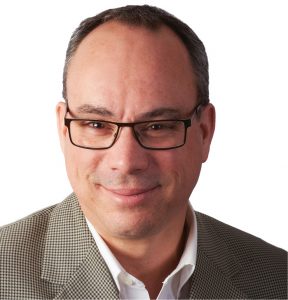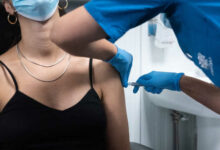“Canadians will be happy to follow Public Health Guidance”
Ontario is allowing almost all regions to move forward to the next stage of the province’s restart phase, which allows restaurants, hair salons and malls to reopen, but Toronto is still excluded from the list.

The majority of Ontario’s public health unit regions moved forward to Stage 2 last Friday (12), ending the months-long closure for some businesses crippled financially by the COVID-19 pandemic. As of this Friday (19), the only regions not allowed to move forward to Stage 2 are Toronto, Peel and Windsor-Essex. They will remain in Stage 1 until at least next week, when the province will reassess the data and decide if they are ready to move forward next Friday (26).
The mayor of Markham is calling on the provincial government to make masks mandatory in enclosed indoor spaces where physical distancing isn’t possible as his city moves towards Stage 2 of reopening this Friday (19). When asked during his daily press conference at Queen’s Park on Tuesday (16) about whether or not he’d consider putting such an order into place, Premier Doug Ford acknowledged the demand but said it wouldn’t happen. “We want to work with the retailers, we don’t want to force anyone to do anything,” said Ford.
With the reopening of the economy, Canadian Public Health Association believe that people will continue to respect social circles and maintain physical distance because they are aware that if they don’t follow the rules, “the number of new cases will increase and steps to re-open society will have to be walked back”.
Founded in 1910, the Canadian Public Health Association is the independent voice for public health in Canada with links to the international community. Ian Culbert is the CPHA’s Executive Director and he accepted to give this week an interview to Milénio Stadium.
Milénio Stadium: More than ever we have the collective responsibility to follow the rules to make sure that all sectors of economy will open as soon as possible and that we will keep flatten the curve of COVID-19. Do you think that Canadians are prepared to be careful during the summer? Are they going to be able to respect social circles and keep social distance?

Canadian Public Health Association (CPHA): People in Canada have taken the threat posed by COVID-19 seriously and, for the most part, are adhering to the guidance provided by public health officials. As the economy begins to open up, we will see immediate results if people do not continue to respect social circles and maintain physical distance because the number of new cases will increase and steps to re-open society will have to be walked back. After three months of restrictions, I believe Canadians will be happy to follow public health guidance – even on a beautiful summer’s day – if it means the return of some semblance of normalcy.
MS: Ontarians are navigating new freedoms after the province lifted some restrictions around having close contract with people outside their households, at social gatherings and outdoor ceremonies. Ontario was one of the last Canadian provinces to allow the reopening of economy and to lift some restrictions. Why did it take so long here, compared with other provinces and territories?
CPHA: Along with Quebec, Ontario was responsible for the majority of cases of COVID-19 in Canada due, in part, to how tightly concentrated our populations are in urban areas. It was not advisable to consider loosening restrictions until the number of new cases had decreased dramatically to the rates we are currently observing.
MS: Premier Doug Ford announced on Monday (15) that York region, Halton region, Durham region, Hamilton and Niagara are among the new regions allowed to move into Stage 2. However, Windsor, Peel Region and Toronto remain in Stage 1. How can we feel safe from now on in restaurants, hair salons and malls?
CPHA: We are all responsible for our collective safety. If the residents of York, Halton, Durham, Hamilton and Niagara do everything in their power to continue to observe physical distancing, limit their social interactions with people outside their immediate families, and wear a non-medical mask in situations where physical distancing may not be possible, then they should feel confident eating in restaurants, or visiting hair salons or shopping malls.
MS: A new study from Cambridge University suggest that if 100% of people wear face masks all the time while in public, it can help prevent a potential second wave of the coronavirus and will also help to keep people safe while we all wait for a vaccine. Canadians are using more masks?
CPHA: There has been a dramatic shift in the societal attitudes in Canada toward wearing non-medical masks in public as protection against COVID-19. As scientific research increasingly demonstrates the effectiveness of non-medical masks in reducing the spread of COVID-19, and numerous transit authorities are mandating their use, many more Canadians are willing to don a mask for our collective well-being.
MS: Passengers travelling by plane to, from or within Canada will have to undergo temperature checks before boarding as part of stepped-up airport screening measures meant to prevent the spread of COVID-19 by travellers. Some essential services are already checking the temperature of their employers. Why not expand the measure to other sectors?
CPHA: Temperature checks are an additional measure to prevent the spread of COVID-19, but only identifies people who are actively ill, with a high temperature. Unfortunately, a person with COVID-19 can be infectious for days before they show any symptoms – if the person shows any symptoms at all. While temperature checks feel like a tangible measure to curb the spread of disease, it may actually provide a false sense of security. It is so important that we continue to follow existing public health guidance including staying at home if you feel unwell, physical distancing, and wearing a non-medical mask when physical distancing is not possible, to effectively control the spread of COVID-19.
MS: Two Canada’s largest grocery chains announced last week that they will stop paying their COVID-19 bonus to essential employees. However, extra pandemic pay for Ontario healthcare workers will be effective until August 13. How long do you think the bonus should be kept?
CPHA: CPHA supports a living wage for all employees, no matter the sector in which they work. We also support sick leave for all employees regardless of their sector to promote people to stay home if they are sick.
Joana Leal/MS








Redes Sociais - Comentários